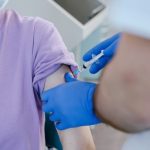Heart inflammation 7 times more likely with COVID-19 than vaccines
Myocarditis is inflammation of the heart muscle.
Myocarditis has rarely been reported. When reported, the cases have especially been in adolescents and young adult males within several days after mRNA COVID-19...
Scientists find 17 health problems linked to long COVID
Most people who get COVID-19 recover within a few weeks.
But some people—even those who had mild versions of the disease—have symptoms that last weeks...
COVID-19 drug Paxlovid may interact with common heart disease drugs
Heart disease patients with COVID-19 are often treated with nirmatrelvir-ritonavir (Paxlovid) to prevent progression to severe disease.
However, the COVID-19 drug can interact with some...
“Bad” cholesterol may increase your risk of long COVID
Cholesterol is a waxy, fat-like substance that your body needs for good health, but in the right amounts. Unhealthy levels of cholesterol can cause...
Over 40% of Americans misled others about having COVID-19 and use of precautions
In a study from the University of Utah, scientists found four of 10 Americans surveyed reported that they were often less than truthful about...
Scientists find how COVID-19 affects the colon
In a study from MedUni Vienna, scientists analyzed the manifestations of COVID-19 in the lungs and colon and pinpointed the differences at a molecular...
A healthy microbiome builds a strong immune system that could help defeat COVID-19
You may not know it, but you have an army of microbes living inside of you that is essential for fighting off threats, including...
Why and when to get a bivalent COVID-19 booster
The original COVID-19 boosters did a great job of preventing severe illness and hospitalization, even during the delta surge.
Then came omicron and its subvariants,...
Third vaccine dose provides longer protection against COVID-19
In a study from the University of Tartu, scientists found that after the third vaccination, the antibody count in the body persists at a...
Monoclonal antibodies remain effective fight omicron variants
In a study from the Francis Crick Institute and elsewhere, scientists found monoclonal antibody therapies continue to neutralize SARS-CoV-2 variants currently in circulation, including...










